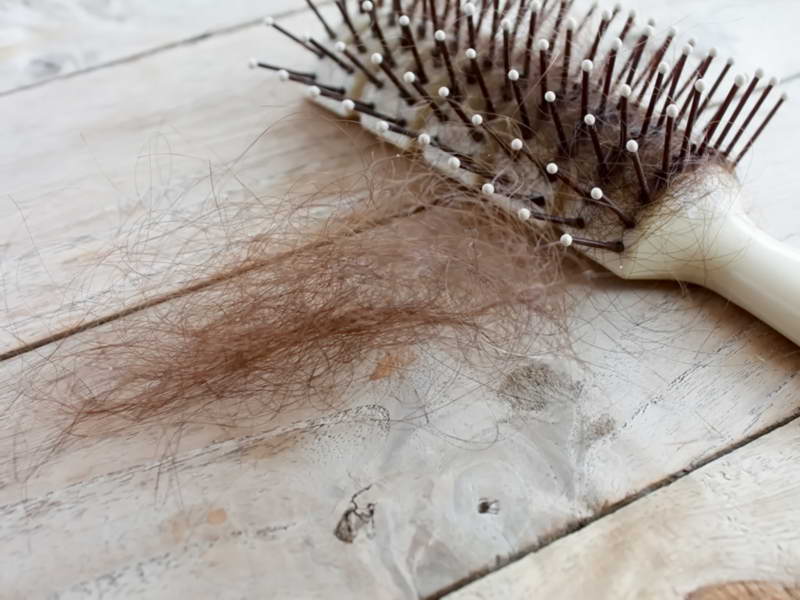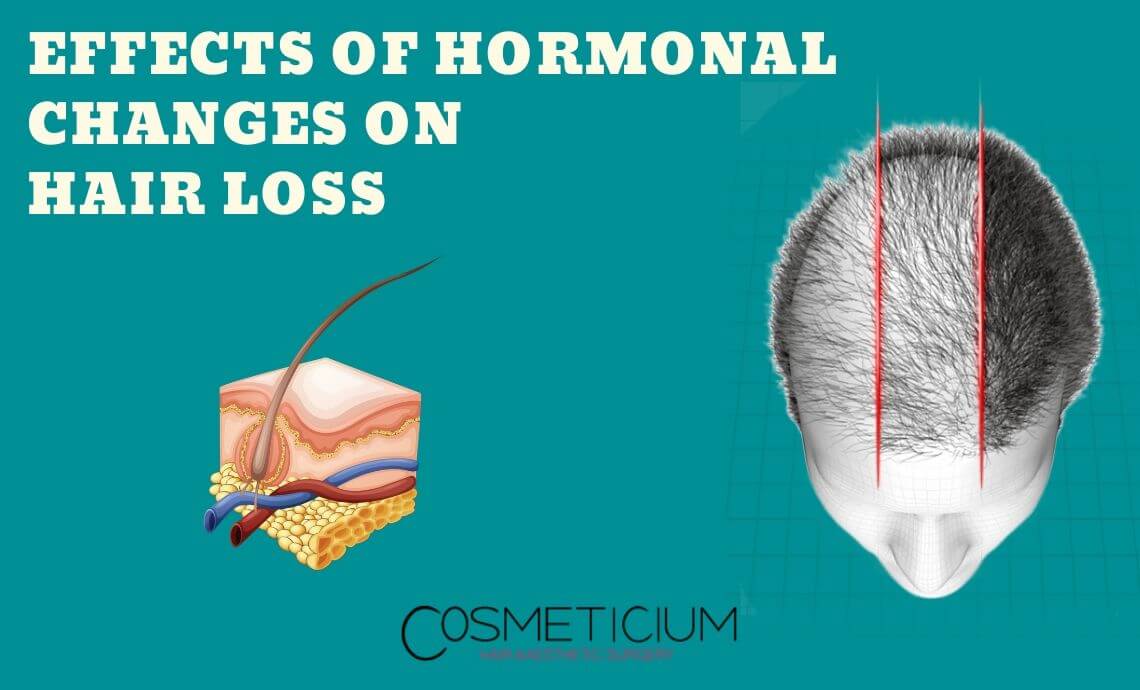Hormones are molecules related to the functioning of the body. Hormones secreted from the glands in different parts of the body affects different processes from growth to blood flow and from absorption of nutrients to brain development. Their being so effective brings into one’s mind whether it is also related to hair loss. Hormonal balance at a normal level does not have any negative effects on the body. So, do hormonal changes have effects on hair loss?
There are about 200 different hormones secreted in the human body. All of them have different tasks. But it must be known that they are related to each other. A problem in one of them can affect multiple regions. The effects of hormonal changes on hair loss should also be handled regarding this fact. In our article, you can find how the usual and unusual hormonal changes in the human body affect hair loss.
Table of Contents
1. Stress
If a question: “What is the biggest enemy of human health?” is asked, different diseases may come into mind. When considered carefully, it can be seen that stress is quite effective at this point. Especially excessive stress affects the body extremely negatively and can cause very serious diseases.
When the bodyis under stress, stress hormones mix into the blood and these hormones start to act directly. This situation has a negative effect on the hair, even when it is considered only for the stress hormone. Hair is fed with vitamins, oxygen, protein and minerals that come through the capillaries on the scalp. The stress hormone causes the capillaries to contract and the blood flows in them to decrease. If the blood flow is slow, the hair cannot be fully fed and as a result, they become weak. If it is not treated on time, the hair starts to fall out and this loss is much more than expected.
Stress affects the lifecycles of the hair. This effect usually causes the hair to pass into the telogen phase. After this stage, hair may not wake up in time and hair roots may die.
The direct effects of stress on hair can be listed in this way. However, it should be remembered that some changes may occur in the level of other hormones secreted in the body while they are under extreme stress. Depending on these changes, different problems can be seen.
2. Polycystic Ovary Syndrome (PCOS)
Polycystic ovarian syndrome, or PCOS, is a disorder in women. The basis of this ailment is the formation of small cysts in the ovaries. The cause of the ailment is not known exactly, but there is a cure. PCOS, which is very common in women, affects the level of hormones secreted by the ovaries. Normally, the direct effects of this disease are the inability to get pregnant and menstrual irregularity. But it also has an effect on the hair because it changes the hormonal level.
When PCOS occurs, the amount of testosterone secreted is higher than normal. In women, sudden increase of the testosterone, which is secreted at a low level, brings together different health problems. This hormone, which is highly secreted in men, causes excess facial hair and oily skin. Besides, it brings thinning and weakening of the hair strands in the scalp. As a result, hair loss can be seen.

3. Menopause
Menopause is not a disease but is a stage of the cycle seen in women’s reproductive systems. At this stage, the reproductive system of women stops completely and it becomes impossible for them to become pregnant anymore. The situation mentioned here is the change in hormone level. Normally, the estrogen level is high and the testosterone level is low in women. With menopause, there is a serious decrease in the level of estrogen and the effect of testosterone increases accordingly.
The testosterone hormone can convert into the hormone dihydrotestosterone (DHT), a hormone that acts on the hair follicles and generally affects them negatively. DHT affects hair follicles extremely negatively and hair loss can occur. The hormone change mentioned above is the basis of hair loss during menopause.
4. Thyroid
Thyroid, which looks like a butterfly on both sides of the throat, provides the secretion of very important hormones for the body. It is known that it secretes hormones that regulate the body’s metabolic rate and how fast the cells work. Therefore, an abnormal situation occurring here affects the hair just like the whole body.
Hair loss that occurs due to thyroid disease usually starts after a month. This type of hair loss is extremely effective and occurs quickly. Therefore a doctor should be consulted directly in case of an unusual hair loss.
To prevent hair loss due to thyroid disease, hormones secreted here must return to their normal levels. At this point, there are drugs that people should use. There are some beliefs that these drugs cause hair loss. Therefore, patients stop using the drug after a while. This leads the disease to progress further and results in increased hair loss. Therefore, patients should use the medicines given by doctors regularly.
You May Also Like: Which Genes Trigger Hair Loss?
5. Pregnancy
The pregnancy is a quite different period for the body. It is through hormones that these differences are fully reflected in the body. The body prepares itself for a baby to grow in the mother’s womb. This preparation takes the form of increasing blood circulation and transferring nutrients to tissues at a high rate. Accordingly, a serious difference occurs in hair growth and development. The difference here is positive. In other words, it can be said that the hair enters a fertile period with pregnancy.
After giving birth, hormones begin to return to their normal levels. Accordingly, the rapid blood flow returns to normal. Thus, high nutrition stops and the hair is affected by this situation. Hair may fall out after birth. These should be considered normal.
If You Are Experiencing Hair Loss and Want to Stop It, Click to Learn More About PRP Treatment, Which is a Completely Natural Method.

